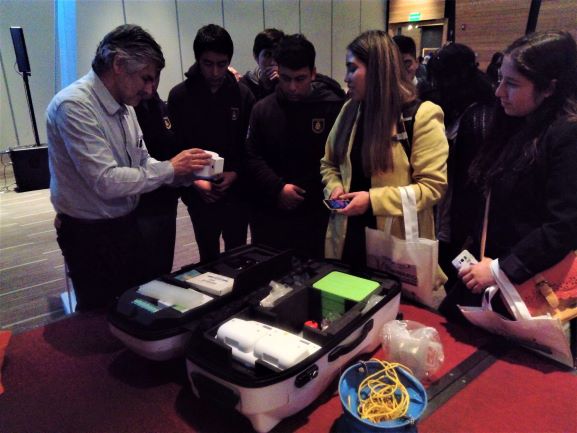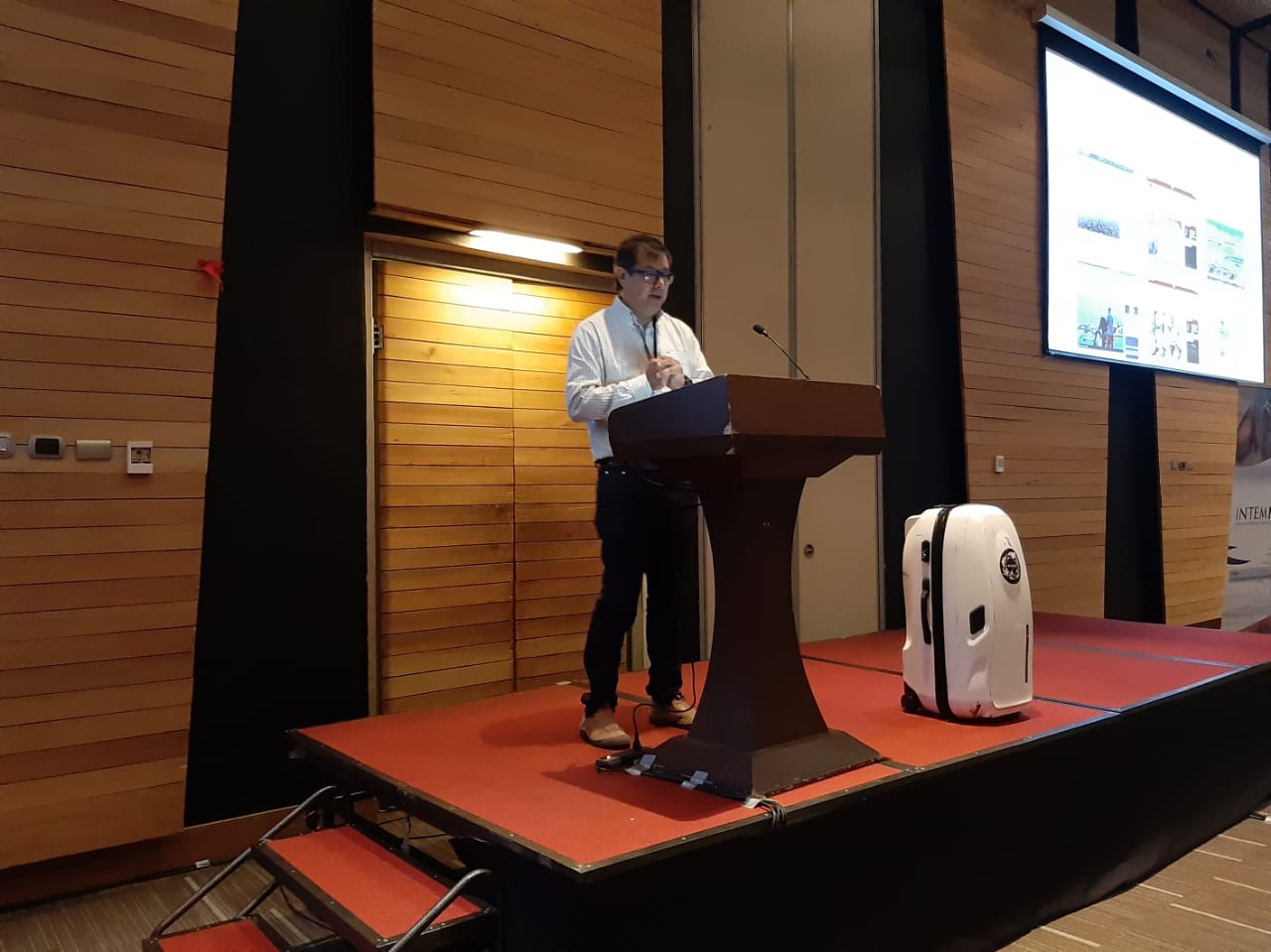On October 10, we have participated a seminar in Castro city, Los Lagos Region (Chiloé Island) , co-organized by Technological Institute of Mitilicultura (INTEMIT) and CETMIS (Centro de Extensionismo Tecnológico para una Mitilicultura Sustentable) for local mussel farming producers. Audiences included local mussel farmers, local National Fisheries Service office (SERNAPESCA), local aquaculture companies and local high school students from Castro, Chonchi and Quemchi, gathering more than 200 people.
This seminar is held every October by INTEMIT for Los Lagos mussel farmers, aiming to promote information sharing among researchers and local industries with the latest information on mussel culture and this year marks 5th event. As a result, there was a request from INTEMIT for the MACH project, and Prof. Milko Jorquera (Project Director) from La Frontera University (UFRO) has participated in a seminar.
Prof. Jorquera, has presented an overview of the ongoing MACH project and a practical example of the suitcase lab currently under development and its significance to the mussel farming. This presentation titled “Detecting harmful algae in Chilean coastal waters using Suit Case Lab ” and the presentation lasted 20 minutes, followed by a 10-minute Q&A session. During the presentation, it is emphasized that 1) detection of “Alexandrium catenella”, a kind of red tide causing algae, on site, is possible, 2) the time required for this inspections is about 2 hours, which can greatly reduce the time compared to the inspections conducted by conventional government agencies, and 3) inspection cost required for each inspection relatively low (about US $ 4.63 for one inspection) .
As Prof. Gonzalo Gajardo from Los Lagos University, one of the MACH project members, was also participating in the seminar, during the coffee break he has explained how to detect harmful algae using suitcase lab to those interested participants. Many local high school students and local private companies (mussel farming companies) participated on the day, and they fully understand that the ongoing project is aiming at “early detection of Harmful Algales Bloom”, recognized as a social problem in the region.

